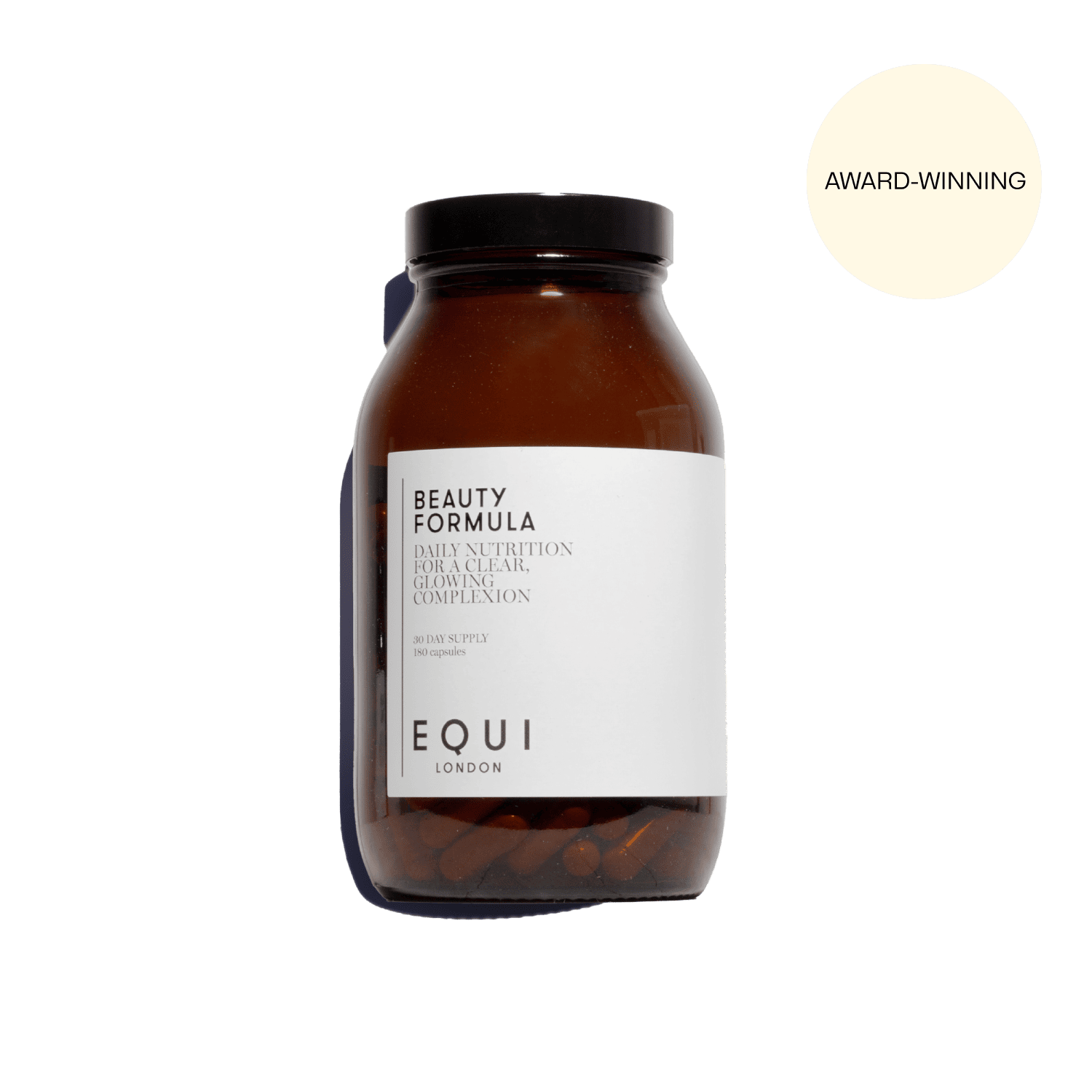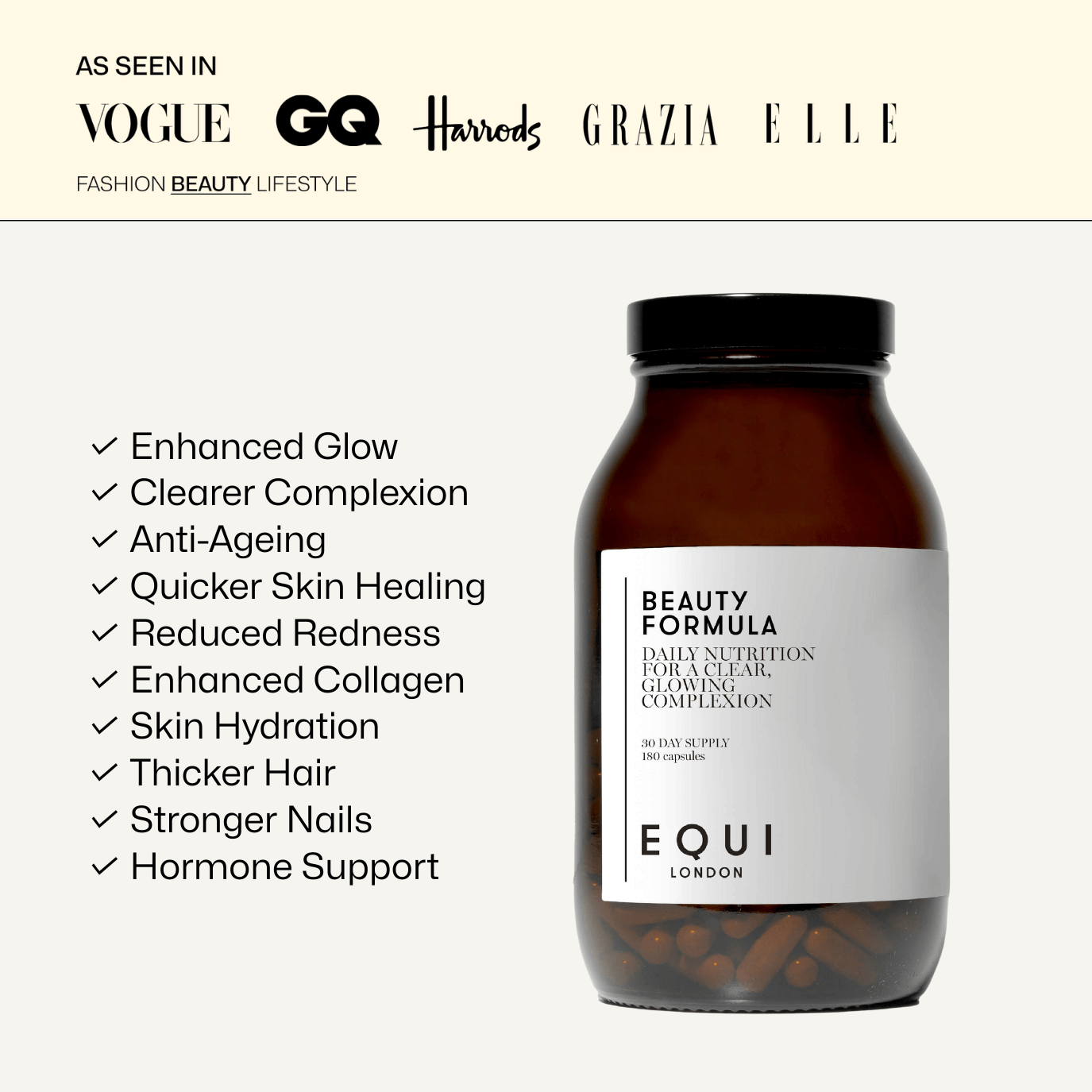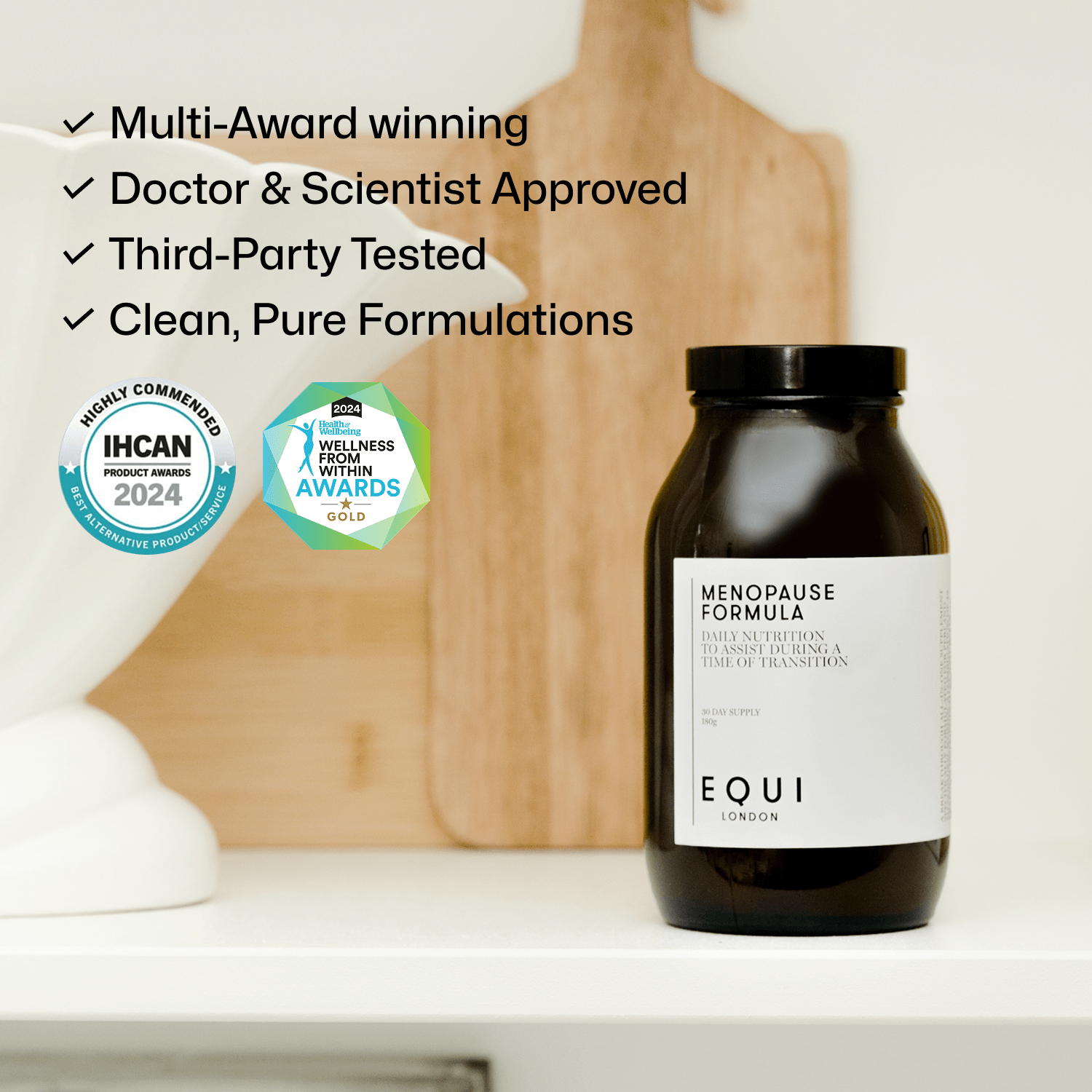
As women, we juggle many roles in our lives. From being a devoted partner or mother, a working professional, a fitness enthusiast, or all of the above, keeping up with the pace of life, maintaining optimal health, and looking our best can be challenging! Amidst all this, the significance of balanced nutrition sometimes takes a back seat. But let’s be honest, even with the most well-intentioned eating plans, meeting every single dietary need can be tough. This is where supplements come in - your trusty allies in the quest for health and wellbeing.
Welcome to our comprehensive guide about nutritional supplements! Whether you're exploring the world of supplements for the first time, or you're a seasoned pro looking to optimise your regimen, this blog is for you. We’ll dive deep into understanding what supplements are, why they can be an important part of your health regime, and how to choose the ones that suit your unique needs. We'll debunk common myths and give you the lowdown on how to ensure maximum efficacy from your supplements. All with a sprinkle of scientific evidence, to keep things accurate and effective!
Understanding Supplements
A dietary supplement is a product intended to supplement the diet and can include vitamins, minerals, herbs or botanicals, amino acids, and enzymes, amongst other things. You can consume them in various forms—tablets, capsules, powders, and even liquids and gummies.
But why are supplements even necessary if you're eating a balanced diet?
The World Health Organisation (WHO), states that while a diverse and balanced diet is the foundation for good health, there are times and situations where supplements can play a crucial role (1). Nutritional gaps due to dietary restrictions, absorption issues, or specific life stages like pregnancy or perimenopause, may warrant a boost from supplements. For instance, B-vitamin supplements can help fulfil the elevated nutritional needs during pregnancy (2). Similarly, research suggests that omega-3 fatty acid supplements can support overall health and wellbeing (3). Even though these fatty acids are found in oily fish, the average intake in many populations is below the recommended levels, making supplementing a necessity. Some supplements may not be obtained in foods or consumed daily such as some herbs and botanicals, including ashwagandha and turmeric which have been used for centuries in Ayurvedic practices for their therapeutic properties. Furthermore, including enzymes like papain in supplements, can help aid digestion and reduce inflammation according to studies (4). Therefore, while the need for supplements is individual and varies greatly, they can complement your diet and support your health when used correctly.
We have included all the key vitamin and minerals in each Formula to support your current life stage. What’s more, we have added herbs, adaptogens and botanicals to draw on their therapeutic properties. Finally, digestive enzymes such as bromelain and papain and probiotics have been included in some Formulas due to their role in supporting digestion and gut health. Our Oil Editions have been formulated with optimal levels of healthy fats, to supplement your diet.
Understanding Supplement Labels
Understanding supplement labels is crucial for making informed decisions about what you're putting in your body. Labels can provide a wealth of information about the ingredients, their amounts, and the recommended daily intake. The %DV tells you how much a nutrient in a serving of food contributes to a daily diet. For example, if a supplement has a %DV of 20% for calcium, it means it provides 20% of the amount of calcium you need each day based on a 2,000 calorie daily diet. It's not uncommon to find supplements with a %DV over 100%, especially for certain vitamins and minerals. This is because certain nutrients are required in larger amounts by some people, including pregnant women, the elderly, or those with specific health conditions (5). Moreover, some vitamins, like B-vitamins and vitamin C, are water-soluble, meaning they aren't stored in the body and need to be replenished more frequently. However, exceeding the %DV isn't always beneficial, for example, fat-soluble vitamins like A, D, E, and K, are stored in fat cells and an excess intake can lead to toxicity. However, due to vitamin D deficiency being a significant public health issue worldwide, whilst the recommended intake is only 400IU per day, we know we need to supplement more than this so you may often see this exceeding the %DV. It's also worth noting that the %DV is based on general guidelines, so individual needs may vary! It's always a good idea to consult with a healthcare provider or a registered nutritionist to better understand your own nutrient needs and how supplements can help meet them.
When and How To Take Your Supplements
The optimal timing of supplement intake depends on various factors such as the type of nutrient, its absorption characteristics, and potential interactions with other compounds in food.
Taking certain supplements after meals can have advantages.
Many nutrients, especially fat-soluble vitamins (A, D, E, K) and certain minerals like calcium and iron, are better absorbed when taken with food (6). This is because dietary fat can enhance the solubility of these nutrients, aiding their absorption across the intestinal lining (7). Additionally, the presence of food in the stomach can slow down the transit of the supplement, providing more time for it to dissolve and be absorbed (8). Supplements taken with food may also be less likely to cause stomach upset, a common side effect when supplements are taken on an empty stomach. For example, iron and magnesium supplements can cause nausea or gastrointestinal discomfort if taken without food.
Splitting the intake of capsules across meals versus taking them all at once
This can have several benefits. Firstly, spreading out your intake can help maintain consistent levels of the nutrient in your body throughout the day. For instance, water-soluble vitamins like B and C aren't stored in the body in significant quantities, meaning that regular intake throughout the day can help keep levels stable. Secondly, splitting dosages can often improve overall absorption. Certain nutrients, like calcium, have a dose-dependent absorption - smaller amounts are absorbed more efficiently than larger quantities taken at once. Thirdly, taking supplements with food can aid in their absorption, particularly for fat-soluble vitamins and certain minerals, as well as help to minimise potential gastrointestinal side effects, such as nausea or discomfort, which can occur when large doses of supplements are consumed at once (9).
Capsules vs Powders
Supplements come in various forms, the most common being capsules and powders. The choice between the two is mainly a matter of personal preference, but understanding the differences can help you make an informed decision that best suits your lifestyle and health needs! Capsules are convenient, easy to carry, and often the preferred choice for those who dislike the taste of certain supplements or have difficulty swallowing. They are pre-measured, which eliminates the need for guesswork in dosing, and they tend to have a longer shelf-life compared to powders. Additionally, some people find that capsules are easier on their digestive systems. Powders, on the other hand, provide more flexibility when it comes to dosage. They can be easily adjusted to meet specific individual needs or preferences, which is particularly beneficial for people who require higher or lower doses than what's typically available in capsule form. Powders can also be mixed into smoothies, yoghurt, or other foods and drinks, which may be appealing for those who struggle with swallowing capsules or pills. Moreover, for larger serving sizes, powders can often be more cost-effective compared to capsules. Regardless of the form chosen, it's always crucial to choose high-quality products from reputable companies, ensure they have undergone third-party testing for purity and potency, and to use them as directed by a healthcare professional.
Since the daily dosage for Menopause, Beauty and Original Formulas is 6 capsules, we decided to offer these in both capsule and powder forms, to cater to everyone’s needs. And by the way, the reason they are 6 capsules is because each Formula contains just under 50 supremely pure and powerful nutrients at optimal levels to support hormone balance, energy, digestion, and mood, proven to comprehensively balance, boost and support women’s bodies, not matter what life stage you are at. When it comes to capsules, we recommend taking these after your meals and ideally splitting the 4 or 6 capsules across 2-3 meals to obtain the best benefits. When it comes to the powder, we recommend mixing this with cold water and consume after food, ideally breakfast. We recommend avoiding hot drinks for 10 minutes before and after taking, to preserve all the natural goodness, active enzymes and probiotics.
Remember that individual factors such as your diet, specific health needs, and the type of supplement should be considered when determining the best strategy for supplement intake. It's essential to note that these are general guidelines, and individual needs may vary. Always read the label of your supplement and consult with a healthcare provider or a nutritional therapist for personalised advice.
What To Avoid
While supplements can provide us with the extra nutrients our bodies may need, it's also essential to pay attention to the other ingredients they contain. These additional ingredients, known as excipients, can sometimes cause adverse reactions or decrease the effectiveness of the supplement itself. Here are five ingredients to avoid:
Talc
Unbelievably, a popular pregnancy supplement contains talc, which is added as an anti-caking agent or filler. Talcum powder helps to prevent the formation of clumps or 'cakes' in powdered or granulated materials. While generally regarded as safe for consumption, there have been concerns about the presence of asbestos, a known carcinogen, in some talc supplies. Look for supplements that use alternative fillers and anti-caking agents like rice powder, silica, or magnesium stearate instead.
Magnesium Oxide
Magnesium oxide is a type of magnesium supplement that is commonly used because it's inexpensive and has a high amount of elemental magnesium. However, it's also known for its poor bioavailability, meaning it's not absorbed very well by the body. A study found that the bioavailability of magnesium oxide was as low as 4%, suggesting that only a tiny fraction of the magnesium in these supplements is actually absorbed and used by the body (10). This could potentially result in a less effective supplement compared to other forms of magnesium that have higher bioavailability, like magnesium citrate, bisglycinate, or taurate. In addition to the poor absorption rate, magnesium oxide is also known to have a laxative effect, which can lead to digestive discomfort or diarrhoea, particularly when taken in high doses.
Maltodextrin
Maltodextrin is a common food additive often used in some supplements, for its versatile properties. It's a polysaccharide produced from starch and it's used as a filler, thickener, or a preservative to improve the texture and shelf-life of products. However, maltodextrin has a high glycaemic index, meaning it can cause a rapid spike in blood sugar levels when consumed. This can be a significant concern for people with diabetes or those trying to manage their blood sugar levels (11). Some people may experience bloating, gas, or other digestive issues after consuming maltodextrin. There's emerging evidence that maltodextrin may negatively impact gut health too. A study suggested maltodextrin could promote the growth of harmful bacteria, impair cellular anti-bacterial responses, and increase the risk of inflammatory diseases (12).
Folic Acid
Some vitamins and minerals in supplements are not in their natural or most bioavailable form and this may be problematic. For example, folic acid is a synthetic form of folate (B9) and is commonly used in supplements. However, around 60% of women carry a MTHFR gene mutation and this makes it genetically difficult for them to convert folic acid to folate (13). So, while folate is beneficial for reducing the risk of neural tube defects in pregnant women, taking folic acid, may not be helpful in some cases. Other research has suggested potential issues associated with consuming high amounts of folic acid. One study found that excessive folic acid supplementation could lead to unmetabolised folic acid in the blood, which might disrupt normal folate metabolism (14). Lastly, folic acid supplementation might mask a vitamin B12 deficiency in older adults, which can lead to neurological damage (15).
Artificial colours and dyes
While these are used to make some supplements more visually appealing, several studies have linked them to various health issues, including allergic reactions and behavioural issues in children (16). Surprisingly, popular off the shelf pregnancy supplements contain artificial colours such as titanium dioxide (E171), iron oxide yellow (E172) & copper chlorophyllin (E141). Titanium Dioxide has been linked with potential adverse health effects. Studies have suggested that it may have negative impacts on the gut microbiota and can cause inflammation (17). More research is required, but France has already decided to ban its use in food products from 2020 due to its potential health risks. The European Food Safety Authority (EFSA) has identified a need for more data on the potential effects of iron oxide on reproductive health (18). Copper chlorophyllin may have potential genotoxic effects (19), although more research is required.
Therefore, it’s not always best to choose the cheapest supplements off the supermarket shelf as these as the ones that often include poor quality ingredients and excipients.
At Equi, we are proud to share that our supplements do not contain any of the above excipients. We have excluded sugar, chemicals, artificial ingredients, fillers, and binders. In fact, we have gone out of our way to ensure everything included is the highest quality and most absorbable form, using premium, bioavailable ingredients. We have used a vegan capsule to encapsulate our Formulas.
Choosing the Right Supplement For You
We have developed each formula to nourish and balance your body’s 10 interconnected systems including skin, hormones, digestion, energy and mind. For example, Wellness Formula is our complete ‘all-rounder’, whilst it will support skin health if your skin is your main concern then our Beauty range is what you need. If you are pregnant, have recently had a baby, or preparing for pregnancy, then we recommend going straight to our Pregnancy collection. For any women who are menopausal or peri-menopausal then our Menopause range is exactly what you need. Therefore, you just need to choose the formula to support your current life stage right now! We have made this super simple for you by developing a quiz that takes just 30 seconds – Take our quiz now!
References:
-
WHO. (2021). 'Healthy diet'. World Health Organization
-
Blencowe, H., et al. (2018). 'Folate Status in Women of Reproductive Age as Basis of Neural Tube Defect Risk Assessment'. The Lancet, 389(10077), pp. 117-130.
-
Abdelhamid, A. S., et al. (2020). 'Omega-3 Fatty Acids for the Primary and Secondary Prevention of Cardiovascular Disease'. The Cochrane Database of Systematic Reviews, (3), CD003177.
-
Muss C, Mosgoeller W, Endler T. (2013). Papaya preparation (Caricol®) in digestive disorders. Neuro Endocrinol Lett, 34(1), pp. 38-46.
-
Yetley, E. A., MacFarlane, A. J., Greene-Finestone, L. S., Garza, C., Ard, J. D., Atkinson, S. A., ... & Coates, P. M. (2017). Options for basing Dietary Reference Intakes (DRIs) on chronic disease endpoints: report from a joint US/Canadian-sponsored working group. The American Journal of Clinical Nutrition, 105(1), pp. 249S-285S.
-
Hurrell, R., & Egli, I. (2010). Iron bioavailability and dietary reference values. The American Journal of Clinical Nutrition, 91(5), pp. 1461S-1467S.
-
Reboul, E. (2015). Intestinal absorption of vitamin D: From the meal to the enterocyte. Food & Function, 6(2), pp. 356-362.
-
Sakai, R., Hasegawa, N., Kiso, Y., & Hashimoto, T. (2001). Effect of timing of meal intake on bioavailability of a single oral dose of a polypeptide drug, nafarelin acetate. International Journal of Pharmaceutics, 226(1-2), pp. 1-8.
-
Hurrell, R., & Egli, I. (2010). Iron bioavailability and dietary reference values. The American Journal of Clinical Nutrition, 91(5), pp. 1461S-1467S.
-
Firoz M, Graber M. (2001) Bioavailability of US commercial magnesium preparations. Magnesium Research, 14(4), pp. 257-62.
-
Hofman, D. L., van Buul, V. J., & Brouns, F. J. (2016). Nutrition, Health, and Regulatory Aspects of Digestible Maltodextrins. Critical reviews in food science and nutrition, 56(12), 2pp. 091–2100.
-
Nicklas, T. A., O’Neil, C. E., & Fulgoni, V. L. (2015). Differing statistical approaches affect the relation between egg consumption, adiposity, and cardiovascular risk factors in adults. Journal of nutrition, 145(1), pp. 170-176.
-
Greenberg JA, Bell SJ, Guan Y, Yu YH. (2011). Folic Acid supplementation and pregnancy: more than just neural tube defect prevention. Rev Obstet Gynecol. Summer;4(2), pp. 52-9.
-
Troen, A. M., Mitchell, B., Sorensen, B., Wener, M. H., Johnston, A., Wood, B., ... & Selhub, J. (2006). Unmetabolized folic acid in plasma is associated with reduced natural killer cell cytotoxicity among postmenopausal women. The Journal of nutrition, 136(1), pp. 189-194.
-
Morris, M. S., Jacques, P. F., Rosenberg, I. H., & Selhub, J. (2007). Folate and vitamin B-12 status in relation to anemia, macrocytosis, and cognitive impairment in older Americans in the age of folic acid fortification. The American journal of clinical nutrition, 85(1), 193-200.
-
Stevens, L. J., Kuczek, T., Burgess, J. R., Hurt, E., & Arnold, L. E. (2013). Dietary sensitivities and ADHD symptoms: thirty-five years of research. Clinical pediatrics, 52(4), pp. 279-293.
-
Proquin, H., Rodríguez-Ibarra, C., Moonen, C. G., Urrutia Ortega, I. M., Briedé, J. J., de Kok, T. M., ... & Van Loveren, H. (2018). Titanium dioxide food additive (E171) induces ROS formation and genotoxicity: contribution of micro and nano-sized fractions. Mutagenesis, 33(1), pp. 77-88.
-
EFSA (2015). Scientific opinion on the re-evaluation of iron oxides and hydroxides (E 172) as food additives. EFSA Journal, 13(12), p. 4317.
-
Yoshida, A., Yokono, O., & Oda, Y. (2012). Mutagenicity of food colors related to indigo. Mutation Research/Genetic Toxicology, 298(2), pp. 97-103.












